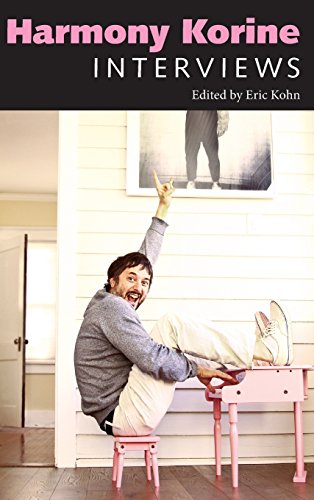

Most ebook files are in PDF format, so you can easily read them using various software such as Foxit Reader or directly on the Google Chrome browser.
Some ebook files are released by publishers in other formats such as .awz, .mobi, .epub, .fb2, etc. You may need to install specific software to read these formats on mobile/PC, such as Calibre.
Please read the tutorial at this link: https://ebookbell.com/faq
We offer FREE conversion to the popular formats you request; however, this may take some time. Therefore, right after payment, please email us, and we will try to provide the service as quickly as possible.
For some exceptional file formats or broken links (if any), please refrain from opening any disputes. Instead, email us first, and we will try to assist within a maximum of 6 hours.
EbookBell Team

4.0
26 reviewsHarmony Korine: Interviews tracks filmmaker Korine's stunning rise, fall, and rise again through his own evolving voice. Bringing together interviews collected from over two decades, this unique chronicle includes rare interviews unavailable in print for years and an extensive, new conversation recorded at the filmmaker's home in Nashville.
After more than twenty years, Harmony Korine (b. 1973) remains one of the most prominent and yet subversive filmmakers in America. Ever since his entry into the independent film scene as the irrepressible prodigy who wrote the screenplay for Larry Clark's Kids in 1992, Korine has retained his stature as the ultimate cinematic provocateur. He both intelligently observes modern social milieus and simultaneously thumbs his nose at them. Now approaching middle age, and more influential than ever, Korine remains intentionally sensationalistic and ceaselessly creative.
He parlayed the success of Kids into directing the dreamy portrait of neglect Gummo two years later. With his audacious 1999 digital video drama Julien Donkey-Boy, Korine continued to demonstrate a penchant for fusing experimental, subversive interests with lyrical narrative techniques. Surviving an early career burnout, he resurfaced with a trifecta of insightful works that built on his earlier aesthetic leanings: a surprisingly delicate rumination on identity (Mister Lonely, 2007), a gritty quasi-diary film (Trash Humpers, 2009) and a blistering portrait of American hedonism (Spring Breakers, 2013), which yielded significant commercial success. Throughout his career he has also continued as a mixed-media artist whose fields included music videos, paintings, photography, publishing, songwriting, and performance art.